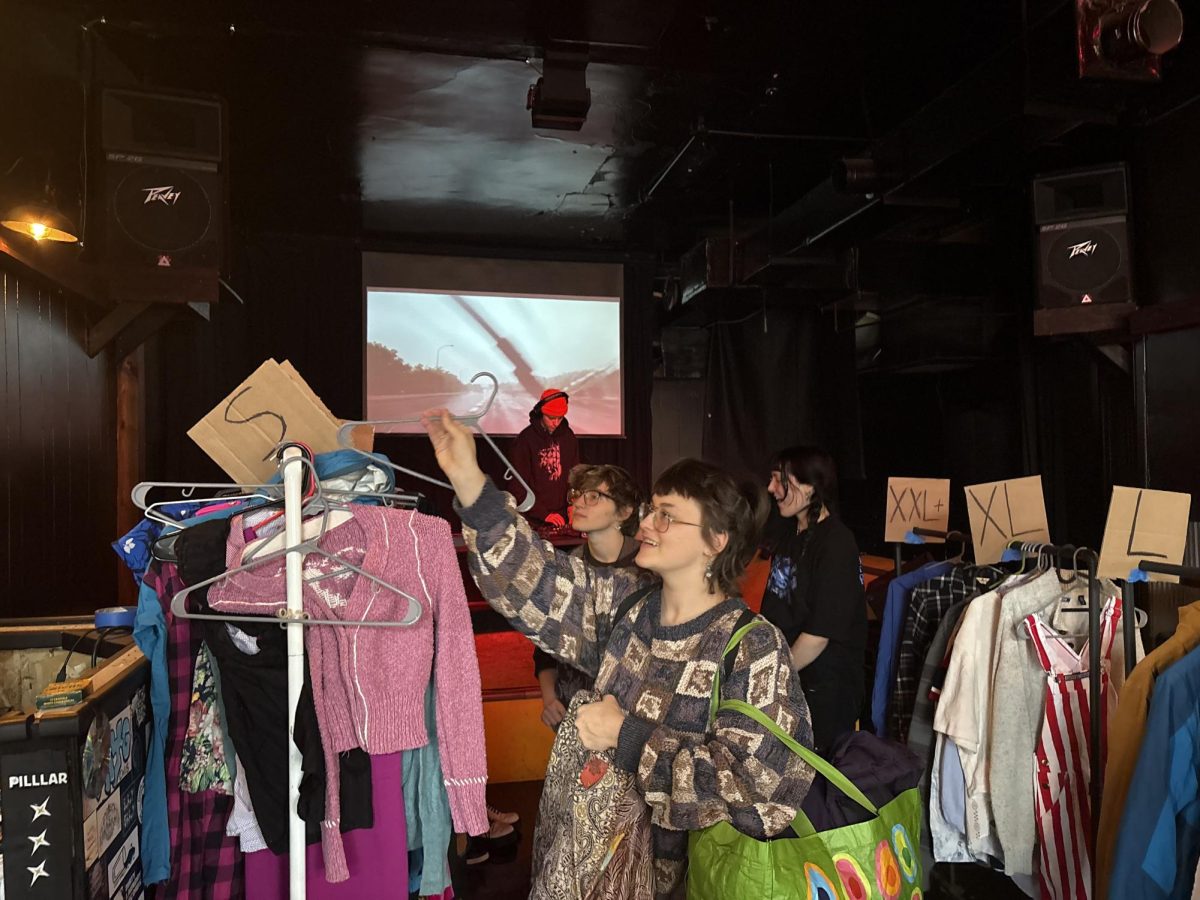Despite funding cuts, the show will go on for Crisis Point Theatre. The student group plans to use money originally slated for equipment to put on an abbreviated season.
In March the Daily reported that the Student Services Fees Committee cut all funding for Crisis Point Theatre.
Crisis Point had previously been awarded approximately $24,000 a year. They had been putting money away – now totaling about $14,000 – to purchase multimedia gear.
When they discovered they were not receiving any funding this year, they decided to use their savings to produce four shows.
“Every year our board changes and the fees committee board changes. Each side is reinventing itself, so the focuses change,” said Christina Akers, senior theater student and administrator for Crisis Point.
Instead of six shows, Crisis Point is putting on four, one of which is rather small.
They will be unable to continue to sponsor special events and speakers to strengthen their group, said Michael Saar, 28, theater graduate student and financial director of Crisis Point.
“One can always do theater without a budget. But it’s difficult,” Saar said.
The 10-year-old student group is unaffiliated with the University’s theater department and aims to give students
exposure to real-world experiences and the challenges they might face by producing works outside the University.
“More than likely many of us won’t be aligned with a performance company after we graduate, so this gives us preparation for what it will be like,” Saar said.
The group is not just for theater students. They have students serving on their board and producing productions from different majors, and they are constantly collaborating with other departments.
Elliott Lynch, 22, theater alumnus, produced his thesis project at the Crisis Point, and was “really freaked out” when he heard about the denial of funding.
“Crisis Point has existed longer than any other theater group on campus,” Lynch said. “I don’t see how homecoming funds for cake and soda can be made when there is something out there that helps out the community so much.”
Bottom line, Saar said, is that students with Crisis Point vow that the group will continue.
“I don’t ever foresee a time when Crisis Point won’t exist in some way,” he said.







